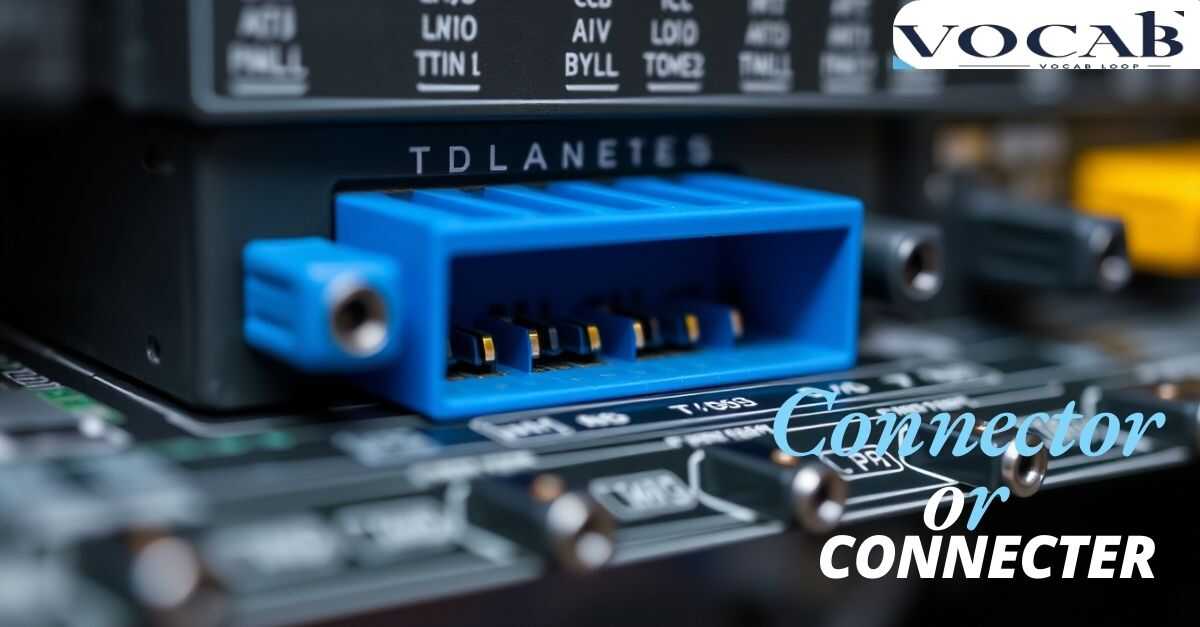“Connector” and “connecter” are variants of the same word, both referring to something that joins or links objects or systems. “Connector” is the more commonly used spelling, especially in American and British English, while “connecter” is an alternative, less frequent form.
Both are correct, but “connector” tends to dominate in technical and general usage, such as in electronics or networking.
What do “Connector” and “Connecter” Mean?
Before we delve deeper into the usage and preference of these terms, it’s crucial to break down what these words actually mean.
Define Connector
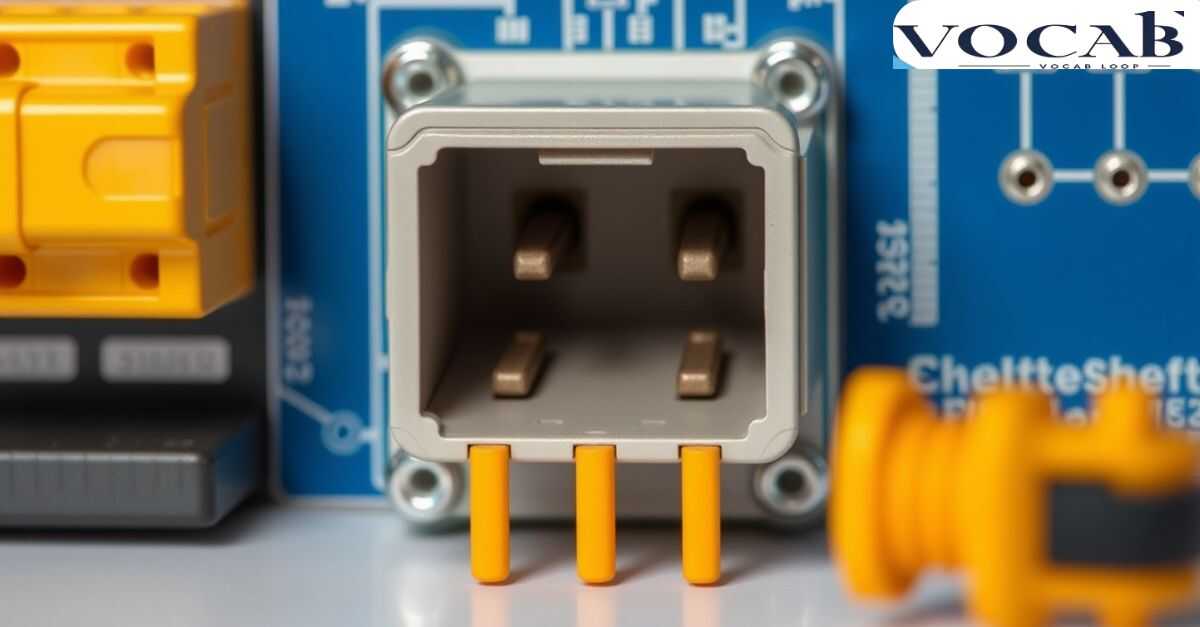
A connector is typically defined as:
- A device for connecting electronic or electrical components
- A person who brings people together or facilitates connections between individuals or groups
- In grammar, a word or phrase that joins clauses or sentences, creating logical links between ideas
Examples of connectors in different contexts:
- Electrical: USB connector, HDMI connector
- Social: Networking connector, community connector
- Grammatical: Conjunctions (and, but, because), transitional phrases (on the other hand, in addition)
Define Connecter
Connecter is essentially an alternative spelling of connector. It carries the same meanings but is less commonly used in modern English. This spelling variant has an interesting history, once being more prevalent in certain English-speaking regions before gradually falling out of favor.
“Connector” or “Connecter”: Which One Should Be Used?
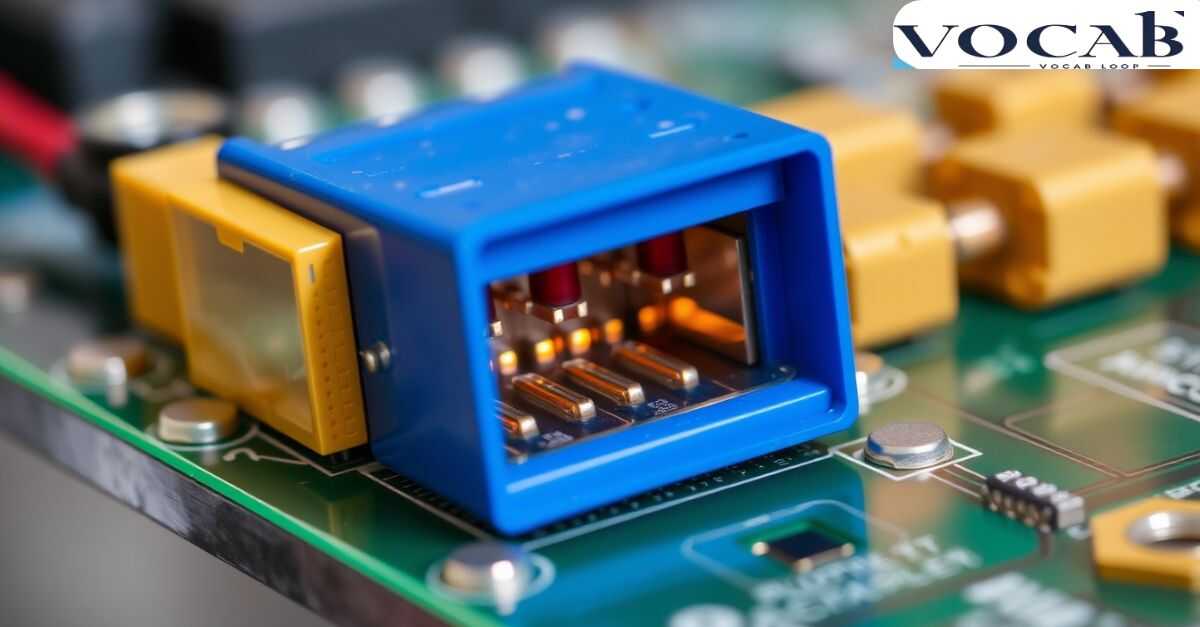
In today’s English, “connector” is undoubtedly the preferred spelling. It’s more widely recognized and accepted across various style guides and dictionaries. However, “connecter” isn’t entirely extinct – it’s just fallen out of favor and is now considered an outdated or alternative spelling.
Let’s break down the reasons for this preference:
- Consistency: Many similar words in English use the “-or” ending for agent nouns derived from verbs. For example:
- Direct → Director
- Conduct → Conductor
- Inspect → Inspector
- Standardization: In technical and professional writing, having a standard spelling reduces confusion and improves clarity. “Connector” has emerged as the standard form in most industries.
- Global usage: While British English once favored “connecter”, it has largely aligned with American English in preferring “connector”, especially in technical contexts.
- Digital age influence: With the rise of technology and the internet, the spelling “connector” has become even more entrenched due to its use in computer and electronic terminology.
Pronunciation of “Connector” and “Connecter”
Despite their different spellings, both words are pronounced identically: /kəˈnektər/. This similarity in pronunciation contributes significantly to the confusion surrounding their usage. The final syllable sounds like “er” regardless of whether it’s spelled with “or” or “er”.
This phonetic similarity is not unique to connector/connecter. Consider these pairs:
- Adviser/Advisor
- Protester/Protestor
In each case, the pronunciation remains the same despite the spelling difference. This phenomenon highlights an important aspect of English: spelling doesn’t always directly correspond to pronunciation, which can lead to confusion and spelling variations over time.
Difference between American and British English
While American and British English often have spelling differences (e.g., color/colour, center/centre), both varieties now generally prefer “connector” in this case. This convergence is particularly noticeable in technical and professional writing.
However, it’s worth noting that British English historically used “connecter” more frequently. You might still encounter this spelling in older British texts or in some very traditional or specialized contexts.
Here’s a brief timeline of usage:
| Period | American English | British English |
| Early 20th century | Connector | Connecter |
| Mid 20th century | Connector | Connector/Connecter |
| Late 20th century onwards | Connector | Connector (Connecter in some specialized uses) |
This shift in British English reflects a broader trend of American English influencing global language norms, particularly in technical and business contexts.
How To Properly Use The Words In A Sentence
Understanding the correct usage of “connector” (and occasionally “connecter”) is crucial for clear communication. Let’s explore how to use these terms effectively in various contexts.
How To Use “Connector” In A Sentence
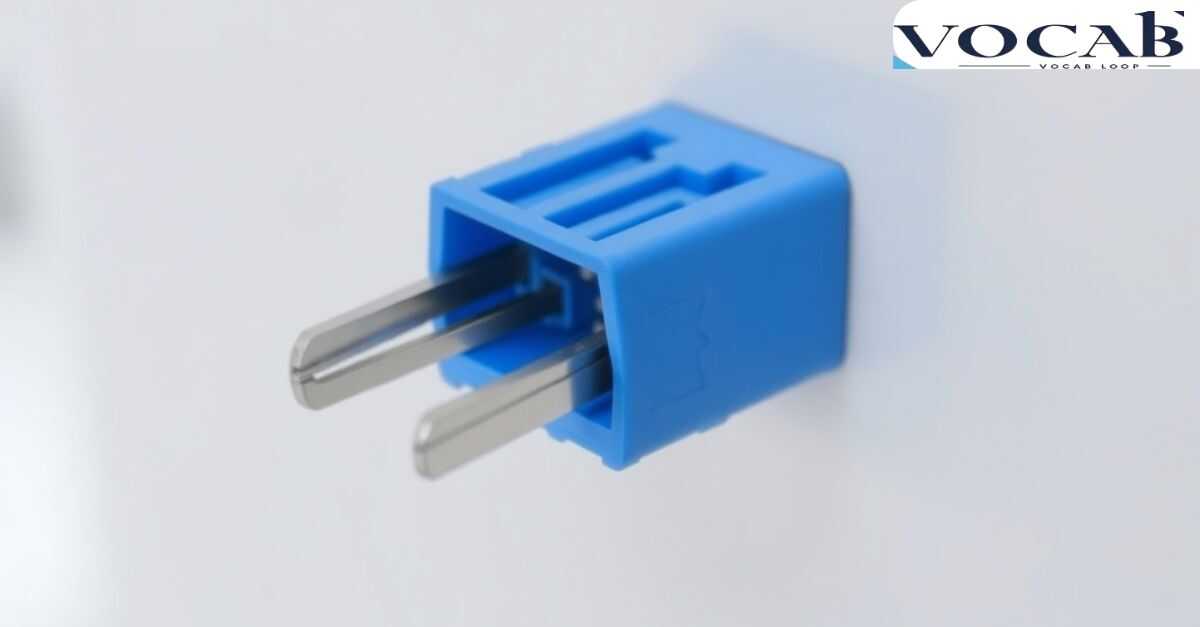
- Electrical/Technical context:
- “The faulty USB connector was causing intermittent connection issues with the external hard drive.”
- “When installing the new light fixture, make sure to use the appropriate wire connector to ensure a safe and secure connection.”
- Networking/Social context:
- “Sarah is a natural connector, always bringing people together at networking events and fostering new business relationships.”
- “As a community connector, John’s role is to bridge the gap between local government initiatives and the needs of neighborhood residents.”
- Grammatical context:
- “In academic writing, it’s important to use appropriate connectors to ensure a smooth flow of ideas between paragraphs.”
- “The connector ‘however’ is useful for introducing a contrasting idea in an essay.”
- Metaphorical usage:
- “Music often serves as a universal connector, bringing people together across cultural and linguistic boundaries.”
- “In urban planning, parks act as green connectors, linking different neighborhoods and promoting community interaction.”
How To Use “Connecter” In A Sentence
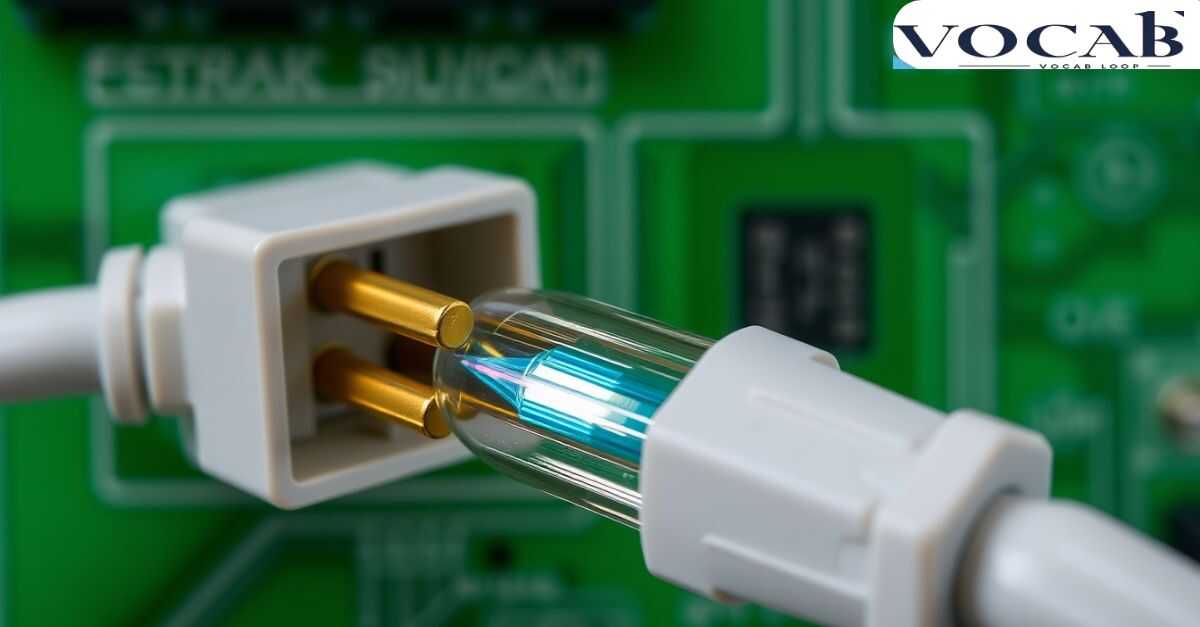
While “connecter” is less common, you might still encounter it in older texts, regional variations, or very specific contexts. Here are some examples:
- Historical or traditional contexts:
- “The old engineering manual referred to the device as a ‘connecter’, reflecting the terminology used in the mid-20th century.”
- “Some traditionalists in the electrical industry still insist on using ‘connecter’ in their technical writing, though this is becoming increasingly rare.”
- Quoting older sources:
- “The 1950s British standard specified: ‘The connecter shall be made of durable, non-conductive material.'”
- Specialized or regional usage:
- “In some parts of rural England, older electricians might still use the term ‘connecter’ when referring to certain types of traditional wiring components.”
Remember, in modern writing, especially in professional or technical contexts, “connector” is almost always the preferred choice. Use “connecter” only when specifically referring to its historical usage or when quoting sources that use this spelling.
Why and How “Connecter” Became Outdated?
The decline of “connecter” is part of a broader trend in English towards standardization, particularly in technical and professional language. Several factors contributed to this shift:
- Influence of American English: As American English became increasingly influential globally, especially in technology and business, its preference for “connector” spread.
Examples of Other Outdated Spellings
The connector/connecter case isn’t unique. English has many examples of spellings that have fallen out of favor over time. Here are some interesting examples:
- Adviser vs. Advisor: “Advisor” is now generally preferred, especially in American English.
- Imposter vs. Impostor: “Impostor” has become the standard spelling.
- Protester vs. Protestor: “Protester” remains more common, but “protestor” is still used.
- Inquire vs. Enquire: “Inquire” is more common in American English, while British English uses both.
- Judgment vs. Judgement: “Judgment” is standard in American English and increasingly common in British English.
This evolution in spelling reflects the dynamic nature of language and the ongoing process of standardization in written English.
Analogy with Similar Verbs:
To better understand why “connector” has become the standard, it’s helpful to look at similar words in English. Consider these examples:
- Conduct → Conductor
- Direct → Director
- Inspect → Inspector
- Collect → Collector
- Instruct → Instructor
Notice the pattern? The “-or” ending is consistent across these words, all of which describe someone or something that performs an action. This consistency helps explain why “connector” has become the preferred form.
Interestingly, there are some exceptions to this rule, such as “builder” or “teacher”, which use “-er”. However, for many words derived from Latin roots (like “connect” from “connectere”), the “-or” ending has become standard.
Origins of the Word “Connector”
Understanding the etymology of “connector” provides valuable insight into its evolution and current usage:
- Latin roots: “Connector” comes from the Latin “connectere”, meaning “to join together”. This verb is composed of:
- “con-” meaning “together”
- “nectere” meaning “to bind, tie”
- Entry into English: The verb “connect” entered English in the 15th century, derived from Latin via Old French.
- Noun form development: The noun form “connector” emerged later, as English speakers needed a term for things or people that connect.
- Spelling variation: The variant “connecter” likely developed due to the common “-er” ending for agent nouns in English (like “teacher” or “builder”).
- Standardization: Over time, “connector” became the preferred form, aligning with other Latin-derived words ending in “-or”.
This linguistic journey showcases how English borrows and adapts words, and how spellings can evolve over centuries.
Synonyms of the Word “Connector”
To enrich your vocabulary and provide alternatives for varied writing, here are some synonyms for “connector” in different contexts:
- Physical/Mechanical context:
- Coupler
- Fastener
- Joint
- Link
- Junction
- Electrical/Electronic context:
- Terminal
- Port
- Jack
- Plug
- Socket
- Networking/Social context:
- Intermediary
- Liaison
- Mediator
- Facilitator
- Networker
- Grammatical context:
- Conjunction
- Transition word
- Linking word
- Cohesive device
- Bridge word
- Abstract/Conceptual context:
- Nexus
- Bridge
- Interface
- Medium
- Conduit
Using these synonyms can add variety to your writing and help convey more precise meanings in specific contexts.
Common Mistakes To Avoid
When dealing with the word “connector” and its usage, there are several common mistakes to be aware of and avoid:
1. Incorrect Usage Of Terminology
- Mistake: Using “connecter” in formal or technical writing.
- Correct approach: Stick to “connector” in all professional, academic, and technical contexts unless specifically quoting an older source.
2. Linguistic Accuracy
- Mistake: Mixing up “connector” (noun) with “connect” (verb).
- Correct approach: Remember that “connector” is the thing or person that connects, while “connect” is the action of joining or linking.
Example:
- Incorrect: “Can you connector these wires?”
- Correct: “Can you connect these wires?” or “We need a connector for these wires.”
3. Professionalism And Clarity
- Mistake: Inconsistent spelling within a document or presentation.
- Correct approach: Choose “connector” and use it consistently throughout your writing to maintain a professional appearance and avoid confusion.
4. Consistency In Communication
- Mistake: Switching between “connector” and “connecter” in the same document or conversation.
- Correct approach: Stick to “connector” in all instances to ensure clear and consistent communication.
5. Industry Standards And Expectations
- Mistake: Ignoring industry-specific terminology or standards.
- Correct approach: Be aware of your industry’s preferred terminology. While “connector” is generally standard, some technical fields might have specific uses or types of connectors with precise names.
Connector in Different Fields

The term “connector” has diverse applications across various fields. Let’s explore some of these:
- Electrical Engineering:
- Refers to devices that join electrical circuits
- Examples: USB connectors, HDMI connectors, audio jacks
- Computer Networking:
- Describes hardware used to join network cables or optical fibers
- Examples: RJ45 connectors, fiber optic connectors
- Plumbing:
- Denotes fittings used to join pipes or tubes
- Examples: Pipe connectors, hose connectors
- Linguistics:
- Refers to words or phrases that link ideas in a text
- Examples: Conjunctions, transitional phrases
- Social Sciences:
- Describes individuals who link different social groups
- Example: “She’s a connector in the business world, known for bringing startups and investors together.”
- Transportation:
- Refers to routes or services that link different transportation systems
- Example: “The new rail line will serve as a connector between the airport and the city center.”
This diversity of usage underscores the importance of the word “connector” in modern English and explains why its spelling has become so standardized.
Conclusion
In the debate between “connector” and “connecter,” “connector” is the clear modern standard. This spelling is widely preferred in both general and technical contexts, reflecting broader linguistic trends and the influence of technology on language. While “connecter” is occasionally seen, it’s now considered an outdated variant.
Stick to “connector” in professional and academic writing for consistency, especially since it aligns with other agent nouns ending in “-or” from Latin roots. Though “connecter” may appear in historical texts or specific regions, understanding both terms enriches our appreciation of language evolution and ensures effective communication.

Alex Hormozi is a seasoned blogger at Vocab Loop, known for his deep insights into language, vocabulary, and grammar. With years of experience in writing, Alex shares practical tips and effective strategies to help readers improve their linguistic skills and enhance their writing abilities.

